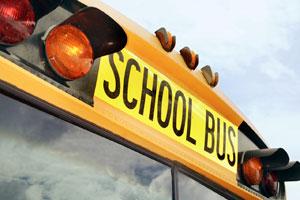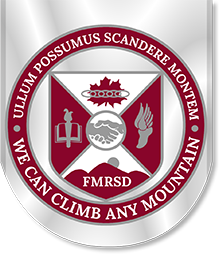Transportation: The District will arrange, at no cost to the student, transportation to the school of origin or, if the student enrolls in the local school, to that school in accordance with District transportation guidelines.
Transportation remains in effect as long as the student is homeless and until the end of the school year in which the student moves into permanent housing.
Homeless Students
Definition of Homeless Children and Youth
The term “homeless children and youth” means individuals who lack a fixed, regular, and adequate nighttime residence and includes:
Children and youth who are sharing the housing of others due to loss of housing, economic hardship, or a similar reason.
Children and youth who are living in motels, hotels, or camping grounds due to lack of alternative adequate accommodations.
Children and youth who are living in emergency or transitional shelters.
Children and youth who have a primary nighttime residence that is a public or private place not designated for or ordinarily used as a regular sleeping accommodations for human beings.
Children and youth living in cars, public spaces, abandoned buildings, substandard housing, bus, or train stations or similar settings.
From the McKinney-Vento Homeless Assistance Act of 2001, Title X-C, Subtitle B, Section 725.
The McKinney-Vento Act
If you lost your housing and now live in a shelter, motel, vehicle, camping ground, or temporary trailer; on the street; doubled-up with family or friends; or in another type of temporary or inadequate housing, your child might be able to receive help through a federal law called the McKinney-Vento Act.
What rights and services can homeless students expect from the School District?
In General: Homeless students are entitled to a free and appropriate public education, the same as all other students in the District. The District will not stigmatize or segregate any student because he or she is homeless.
School Attendance and Enrollment: A homeless student can continue to attend his or her “school of origin” (that is, the school attended before becoming homeless, or the school in which the student was last enrolled) or can enroll in the local public school. If feasible, at the family’s request the District will arrange transportation for any student
living temporarily in the District back to his or her school of origin or
living temporarily out of the District back to the student’s District school.
If a student continues to attend his or her school of origin, he or she can remain at that school during the entire time he or she is homeless. Even if the student moves into permanent housing during the school year, he or she can remain at the school of origin until the end of the year.
Homeless students who enroll in the local public school where they are living temporarily will be immediately enrolled in school even if they lack medical records, immunization records, proof of residence, proof of guardianship or any other records usually required for school enrollment.
FMRSD School Board Policy
JFABD - Admission of Homeless Students (Google Doc)
Disputes: If the District places the student in a school and the family disagrees with that placement, the District must explain the decision in writing and must provide a written explanation of how to appeal the decision.
Dispute form and process (PDF document)


School Meals: The District will arrange free meals (breakfast and/or lunch as offered by the school) at the family’s request. Once it is determined that the student is eligible for free meals, the free meals can remain in effect for the entire school year.
Title 1 Services: Homeless students are entitled to certain other services, such as extended day care, preschool and supplemental tutoring instruction, clothing and school supplies. The District will arrange these services if applicable. Title 1 services remain available as long as the student is homeless and until the end of the school year in which the student moves into permanent housing.

Who can help?
You can contact Alice Cable. She is the Homeless Liaison for the Fall Mountain Regional School District. She can be contacted by email at acable@sau60.org or by phone (603) 835-0006.
The NH Department of Education McKinney-Vento Liaison is Christina Dotson. She can be contacted by email at Christina.L.Dotson@doe.nh.gov or by phone (603) 271-3840.
National Center for Homeless Education. n.d. What You Need to Know to Help Your Child in School: A Guide for Parents, Guardians, and Caregivers [Brochure].United States of America:Department of Education.
Resources
Education for Homeless Children and Youth Program (EHCY)
https://www.education.nh.gov/who-we-are/division-of-learner-support/bureau-of-instructional-support/ehcy
Hear Us
Giving voice and visibility to homeless children and youth.
hearus.us
Hope Starts Here
Website providing statewide information and resources for families, youth, and individuals in homeless situations.
www.home4hope.com
National Center for Homeless Education
NCHE operates the U.S. Department of Education's technical assistance and information center for the federal Education for Homeless Children and Youth (EHCY) Program.
nche.ed.gov
NH Coalition to End Homelessness
A non-profit organization working to eliminate the causes of homelessness through research, education, and advocacy.
www.nhceh.org
NH Department of Health and Human Services Bureau of Housing Support
https://www.dhhs.nh.gov/programs-services/homeless-services
603-271-5043
NH Help Line
For statewide information and referral for any human service needs.
www.211nh.org/
1-800-852-3388
SchoolHouse Connection
Supporting the attendance of students experiencing homelessness.
www.schoolhouseconnection.org
